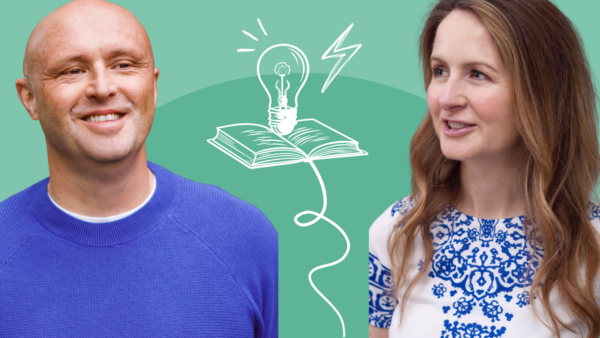Over the past few years, I’ve worked with a number of people as a coach whose colleagues have said that they don’t understand how the person can be so different outside of work (friendly, fun, approachable) when at work they can be stand-offish, aloof, or a bit highly strung, anxious somehow.
There’s all sorts of reasons why people find it hard to turn up as their authentic, natural selves at work and today I’d like to explore this and offer some thoughts on why it’s important to be your authentic self at work and how to do it too.
Last week in Stylist magazine, there was an interesting article about being your authentic self which related in particular to people not revealing everything about themselves to colleagues for fear of being singled out or stigmatised. Specifically, the article mentioned stats of one third of LGBT people hiding their sexuality from colleagues in case they got a backlash and 50% of people with mental health issues not mentioning this to their employers because they feel it might hold them back in their careers.
The article talks about a new report which explored 65 different studies on revealing or hiding stuff like this from others and found that people with “non-visible stigmas” (such as sexual orientation or health problems) tend to be happier with their overall lives and more productive at work if they live openly at work. In addition, people who speak openly about their non-visible stigmas at work experience decreases in job anxiety and role ambiguity (like feeling that you’re being pulled in two directions at once by your role), increased job satisfaction and improved engagement in the workplace.
Outside of work, the more open people also reported decreased psychological stress and increased life satisfaction.
Benefits of being your authentic self
That’s pretty clear cut – if you share more of who you are, you’re more likely to feel good about yourself, about your work and about your level of connectedness with work. Let’s look at why: I’ve mentioned before the idea of cognitive dissonance and cognitive consonance which is a concept from like a million years ago (actually 60 years ago), which tells us that people strive towards a state of consonance, where they can feel psychologically comfortable because their world is aligned, they feel balanced and complete and all is well.
 So if you’re feeling dissonance, that is uneasy about stuff because it doesn’t quite fit together right…for example you’re a better performer than your colleague at work but they are paid more than you, or you aren’t telling people important stuff about yourself even though other people seem happy to share, then the theory goes that you should be motivated to somehow move towards a state of consonance and feel more at ease with the world as a result. And people who create that sense of consonance get those positive outcomes I mentioned.
So if you’re feeling dissonance, that is uneasy about stuff because it doesn’t quite fit together right…for example you’re a better performer than your colleague at work but they are paid more than you, or you aren’t telling people important stuff about yourself even though other people seem happy to share, then the theory goes that you should be motivated to somehow move towards a state of consonance and feel more at ease with the world as a result. And people who create that sense of consonance get those positive outcomes I mentioned.
So there’s your basic psychology that helps explain this new study. Also, what’s been discovered recently is that humans are weirdly good at working out when something’s not right with someone else, at least up to a point. If you hide stuff – like emotions, or important stuff that matters to you – then other people tend to just ‘sense’ it somehow without being able to quite put their finger on the why…the other person just feels uneasy themselves because you’re experiencing dissonance and therefore higher anxiety and so they pick up on it and can feel it too. Neurologically, this phenomenon is possibly linked to mirror neurons but that’s too random to talk about here so I’ll leave it for another day.
How to be your authentic self
If holding onto and hiding things from others makes you feel uneasy, uncomfortable and like you may get found out at some point, then revealing those things can really take the heat out of that anxiety. Plus if you’re the one that puts a name to it, you keep the power position because you’re the one that chose to share the information, rather than other people rumour-mongering or making suggestions or comments to get you to share.
By sharing, we lower the risk of stigmatisation by making it OK to be us, which helps sense-make for others and helps them to accept us for who we are. The risk is that you might end up experiencing some stigmatisation as a result, but face into this and it will be short-lived – “yep, there it is, you got me. And, so what?”
 We’re talking here so far about big stuff that people may or may not choose to reveal. But an easier entry point to being your authentic self at work is to start by knowing what it is that makes you unique – the good stuff and the not so good stuff, and starting to share that with colleagues so that they can appreciate the strong bits of you, where you make a great contribution as well as accept and support you with the areas you struggle with, your weaker points.
We’re talking here so far about big stuff that people may or may not choose to reveal. But an easier entry point to being your authentic self at work is to start by knowing what it is that makes you unique – the good stuff and the not so good stuff, and starting to share that with colleagues so that they can appreciate the strong bits of you, where you make a great contribution as well as accept and support you with the areas you struggle with, your weaker points.
A lot of the work I do is with strengths – you may have seen from some of the posts we put up at Strengthscope the Strengthscope profile, which shows your unique pattern of what energises, motivates and drives you, as well as what drains and demotivates you. When people see this picture of themselves for the first time, they often have a bit of a moment of recognition that this is them but the next part of the story is to help them acknowledge this uniqueness and then start to share it with colleagues, with their manager, with friends and family.
We’re told that this process can be a real ‘weight off’ for people as they get that affirmation and support from others for who they really are and that can help hugely with being their authentic self at work. And of course it can be the start of a journey to revealing other, deeper and more personal aspects of themselves which will help them to be even more authentic and relaxed at work.
So whatever you choose to share with others, my experience – both personal and in my coaching work – is that this sharing, this showing of the real human you will be appreciated, respected and will create a greater connection, understanding and deepening of trust with other people. Yes, it’s a risk, and you’ve got to decide whether, when, who with and how much you share with others, but the drain of anxiety that you feel when you keep a lid on the important emotional stuff is more often than not far outweighed by the sense of release and relief that people talk about when they open up and get honest and authentic about who they really are.
Want to learn more about how to be your authentic self and maybe uncover some of your hidden strengths? Get in touch with our great team at Strengthscope.
Did you know this blog is also available as a podcast along with some other incredible content? Check it out on iTunes, Spotify, Acast.












